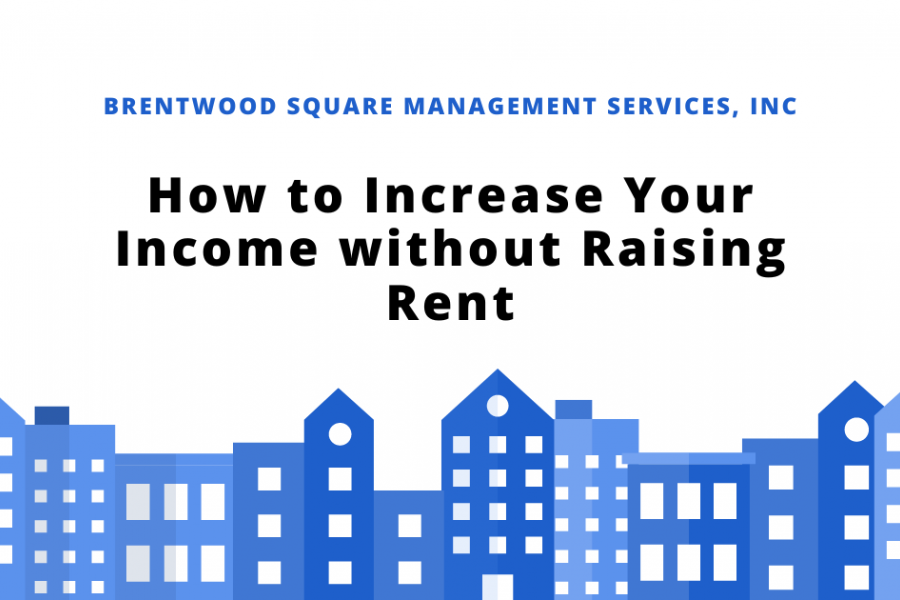
Being a landlord can have a lot of perks. From a regular monthly income, to numerous tax deductions, to investment diversification. Admittedly, though, the monthly passive income is the most lucrative perk.
As long as you have a great tenant, you’ll be guaranteed a recurring income for many months to come. And usually, you can always increase the rent amount to generate an even higher return on investment.
That said, raising rent to generate more rental income isn’t always ideal. Why? You may begin to experience a high tenant turnover rate. In addition, there may be legal restrictions that may limit how much you can raise the rent and how often you can do so.
In today’s blog, we’ll provide you with proven tips on how to increase your income without raising rent. Keep reading this article to learn more!
Charge Fees on Late Rent Payments
The lease obligates a tenant to pay rent on time, every time. And when they don’t, you can penalize them by charging them a fee. This is a great way to not only increase your rental income, but also discourage late rent payments.
When charging fees on late rent payments, make sure to keep the following things in mind. One, check your local laws to ensure you’re acting within the legal confines.

Under Tennessee law, the maximum late fee is pegged at 10 percent of the rent amount due. For instance, if the rent due is $1,500, then the maximum fee you can charge the tenant as late fees would be $150. In total, the tenant would owe you $1,650.
Please note that Tennessee landlords are legally required to provide their tenants with a 5-day grace period. You can only charge a tenant a late rent fee after the grace period is over.
Charge Pet Fees
Generally, it’s up to the landlord to decide whether or not to allow pets into their rental property. Advisedly, though, allowing pets into your rental property can have a positive impact on your bottom line.
You can benefit from having a larger tenant pool, attracting responsible tenants, and even increased income. The increased income can be a result of charging pet rent or a higher security deposit.
You can charge the tenant a non-refundable pet fee for every animal the tenant keeps. If, for example, the tenant has one dog and two cats, you can ask for a pet fee for each. Usually, pet fees range from a low of $100 to a high of $300 per animal.

Alternatively, you could consider charging a pet deposit although less lucrative than a pet fee. Pet deposits, unlike pet fees, are refundable at the end of the lease term, minus allowable damages.
Please note that disabled tenants are exempt from such fees. Service animals or companion animals are not pets as per the Fair Housing Act. They are seen as accommodations necessary to make the life of a disabled person easier and convenient. What’s more, you cannot restrict the animal’s size or breed.
Build Professional Relationships with Local Vendors
Property repairs and maintenance are inevitable in the life of any landlord. Your tenant may need help fixing a leaky faucet, a malfunctioning appliance, or a blocked drainage. You’ll need to fix these as soon as possible as unattended maintenance issues only tend to become worse over time.
And unless you can fix the issues yourself, you’ll need local service professionals at your beck and call. Having a solid relationship with these professionals will ensure quick and reliable responses whenever you need their help.
You can also negotiate discounted rates depending on the volume of work, thereby reducing your repair bills.
Provide More Storage Spaces
Tenants appreciate more storage spaces, especially those with families. You can take advantage of this need to increase your income without having to raise rent. You can charge your tenants more for them to be able to access extra storage spaces such as attics, basements, or sheds.

You can also maximize existing spaces, such as by doubling hanging rods, adding shelves and drawers, or opting for multi-purpose furniture with built-in storage spaces.
Rent Out Furnished Rentals
Although costly at the beginning, renting out a furnished rental can help you generate more monthly income. In addition, you may also be able to minimize your tax obligations when filing. Why? Because, furniture is a depreciable asset and tax deductible as per the Internal Revenue Service.
That said, renting out furnished rentals has its fair share of cons as well. For one, furnished rentals only appeal to a certain segment of the rental market, usually students and expatriates. And two, furnishing a home doesn’t come cheap.
Allow Tenants to Sublet
Whether or not to allow tenants to sublet their units is often a debate among landlords. However, if you do it properly, it can be a source of extra income for you.
You can require any tenants wishing to sublet their unit to pay a certain fee. The fee is usually between $50 and $100 per tenant.
Make sure you have a detailed policy on subletting in your lease to cover any potential liabilities and unnoticed costs that landlords often accrue.
Conclusion
There you have it. tips on how to increase your income without raising rent. Charging competitive rent will ensure you have a successful and profitable rental property investment.
If you need expert help in any aspect of managing your rental property, then look no further than Brentwood Square Management Services, Inc. We have been providing full-service property management to our trusted clients for years. Get in touch to learn more!
